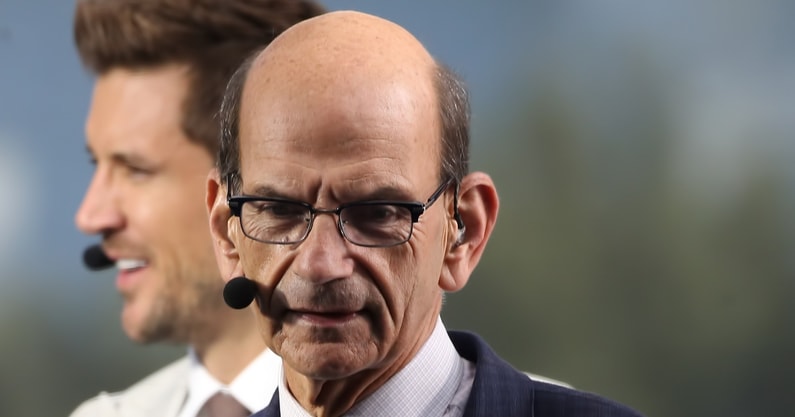Paul Finebaum questions who will enforce NIL regulations in future

The House settlement was filed in court last Friday. Within it were several references to NIL and agreements to regulate NIL in the future. That’s something that analyst Paul Finebaum has concerns about moving forward.
As he explained on McElroy and Cubelic in the Morning, Finebaum has questions about who will actually enforce those new NIL regulations because he doesn’t have faith in the NCAA to do so.
“Remember, a lot of these details had to be included to get this thing across the goal line,” Paul Finebaum said. “My ultimate question, though, is regardless of what is in there, who is going to be around to enforce any of it?”
A focus of the House settlement has been on ‘true NIL.’ That includes making sure that NIL collectives only make payments to players for a valid business purpose. In other words, paying a player for marketing rather than to simply retain or recruit them to a roster.
The settlement also requires Division I athletes to report deals worth $600 or more to a newly created clearinghouse. That clearinghouse would need to approve deals and non-approved deals could potentially lead to a player being made ineligible. It’s language that has been seen in federal bills, implying the NCAA wanted it included. However, experts have concerns about that aspect of the settlement leading to more lawsuits.
Top 10
- 1Live
Ole Miss upsets Georgia
Fans storm field too early at Vaught-Hemingway Stadium
- 2New
Todd Golden speaks
Statement released amid stalking accusations
- 3
Goalposts down
Georgia Tech fans march through campus after upsetting Miami
- 4
Smoke delay
Ole Miss vs. Georgia delayed after fireworks display clouds field
- 5
Ole Miss squirrel returns
Critter back in Oxford, delays game
“I realize this is a court settlement,” Finebaum said. “So, we’re thinking maybe the jurisdiction level goes beyond the NCAA, but I sincerely doubt it will. I just think it’s a bunch of lawyers putting a bunch of things in an agreement so they can end this case.”
The House settlement is, ultimately, going to be remembered for leading to revenue sharing in college athletics. It’s also going to result in former college athletes receiving back pay for damages.
“Maybe I shouldn’t have been surprised because plaintiff attorneys have a specific purpose, but the idea — what is the final number? They were going to walk away with a couple of billion dollars in this deal,” Finebaum said. “It was just astonishing and it reminded me to what the genesis of all of this was when it started. I don’t think it was to help athletes in the future. I think it was line the pockets of lawyers, which is usually the case in lawsuits.”
Ultimately, Paul Finebaum is far from the only person wondering about the future of enforcement as the future of the NCAA itself has come into question in a changing college sports landscape.